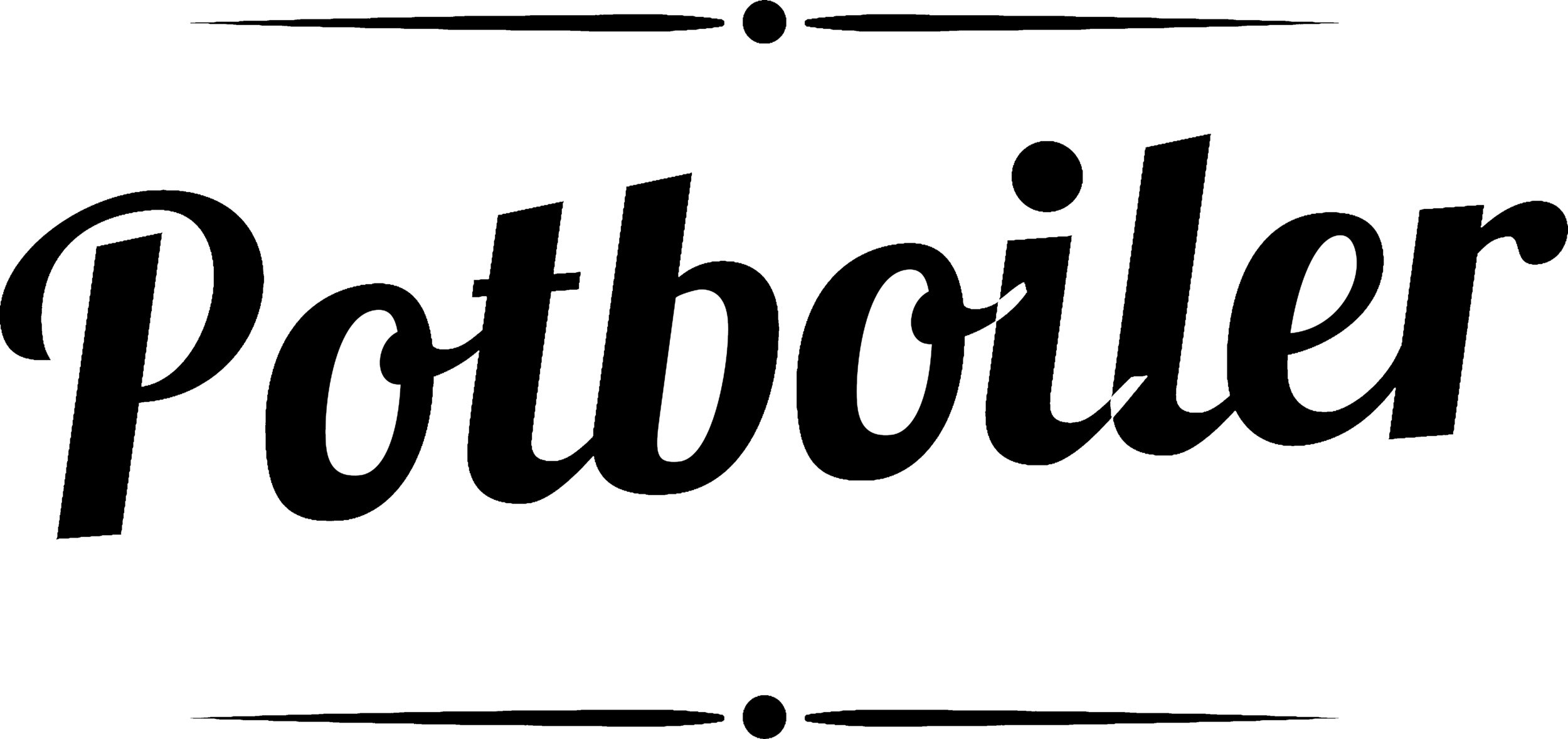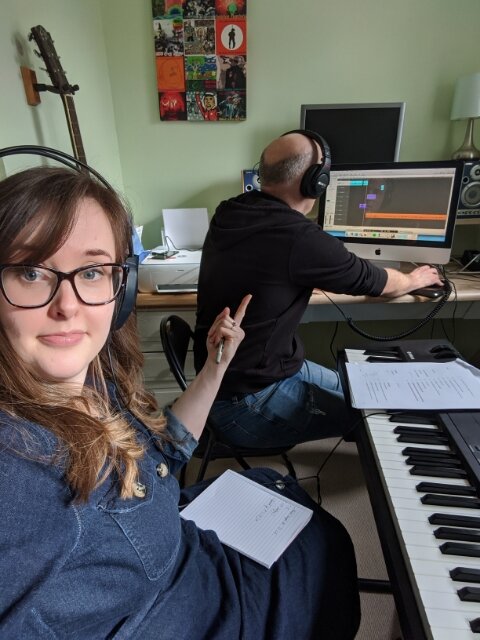Some musings on directing audio drama...
Today Potboiler have been recording Instructions to Those Leaving Planet Earth at Goldfinch Studios (otherwise known as my house…) with actor Thomas Hunt and Composer/Sound Designer, Dave Culling.
Potboiler is used to working in site-specific environments so being in a heated space, in the light and with a cuppa, with no pressure to worry about audiences felt very luxurious indeed. With an experienced team we were pumped to explore our first ever sound commission for an audio walkaround piece in a local church.
Commissioned in response to One Small Step, an installation at Lichfield Cathedral by artist-in-residence Peter Walker, Instructions to Those Leaving Planet Earth will be an audio-led piece in St Giles Church, Newcastle-under-Lyme in March 2020. Learn more here.
Co-founder KB and I always do a very thorough de-brief after our shows where we write passive aggressive notes to ourselves and each other to remind us of key moments of learning and insight in the hope we can keep growing as artists and as a company.
We thought it would be useful / vaguely interesting / maybe even riveting to share these with the wider world!
So here you are: my incoherent musings on directing audio drama…
A Director’s Notes to Herself:
1. A director’s prep
I had been brilliantly prepped by Director Gwenda Hughes who directs The Archers and has lots of experience making work for listening audiences. Still, I wasn’t quite prepared for the speed of rehearsals and recording for audio. The piece was recorded in a morning and the beginnings of postproduction took place over the afternoon. Total director hours on a 25-minute piece including writer meetings, composer meetings, prep and post production have been around 22 hours. In future I would make more thorough notes for giving directions, as in the moment, decisions and directions needed to be clear, concise and made quickly. I am used to theatre rehearsals where there is a little more room for “let’s try it and see …”.
2. Write shorter, more concise notes that can be translated into quick directions.
3. Working with a composer you have already collaborated with is extremely useful when working to a tight turnaround.
For me, one of the creative moments of the day was when we sat in post-production and put Dave’s compositions with the text. We found that the music can answer questions in the text, amplify moods and emotions we want to draw out but can also play against the text and draw listeners into the emotion without ‘playing the effect.’
Choosing music that best served the story is something I really enjoy largely because I have only ever worked with composers who are brilliant at their job and will work with me to find the best solution to serve the story, even when that means cutting down music or just asking them to bang a wok (which Dave says I frequently do). Apparently I once asked him as Musical Director to make it “less musical.” And reader, he did.
4. Find collaborators that can tolerate you and your notes.
5. KB and I discussed leaving more room in a sound piece for the audience to place their own thoughts. This script is slightly sparser than the average Potboiler text, and this has been really exciting to direct. The beats beyond the lines land in different ways. There is also room in post-production to extend or remove them.
6. Leave space for the character of the listener.
7. Usually as a Director (and Co-Producer) I am working as long as another team member is working. While a piece is being written I am in regular meetings and beginning pre-production. Then I am full time in rehearsals and once the show is up noting the show, writing reports or working on box office. Today, whilst Dave was working on the sound design, I sat there, doing nothing. Nothing. There was nothing I could do until the chosen takes had been pieced together and levels sorted out. This. Is. Weird.
8. Make everyone a cuppa when they are busy are you are not.
9. Ask the performer how they like to work as they have brilliant insights and know what works for them and what doesn’t.
Tom, our astronaut, is a very experienced voiceover actor. Working with him made the experience a) enjoyable b) explorative and c) fun. Tom came to the record prepped, with loads of new language I hadn’t heard or used before “the can” “clean record” “raw record.” This was both thrilling for an utter radio nerd and informative. I spoke with him before the rehearsals and recording to find out how he likes to work. It surprised me to learn that this wasn’t asked of him very often.
Following yet another brilliant piece of advice from Gwenda Hughes, we talked about using breath, multi-rolling and the set up for the day. This meant both of us came to the rehearsal with a clear idea of how the day might work. It also meant Tom had chance to send over some cracking Brian Eno which we all enjoyed whilst the final draft was prepared.
There are a ton of more things we have learnt along the way about producing and the writer/director relationship but they are worth at least another two blogs. That is plenty to be getting on with for now and I’ve got a few more lists to write to myself.

